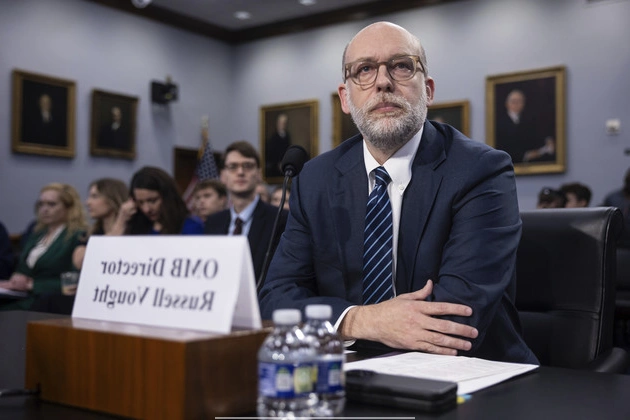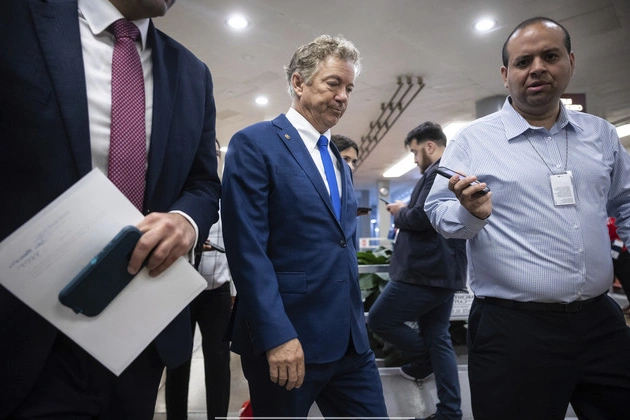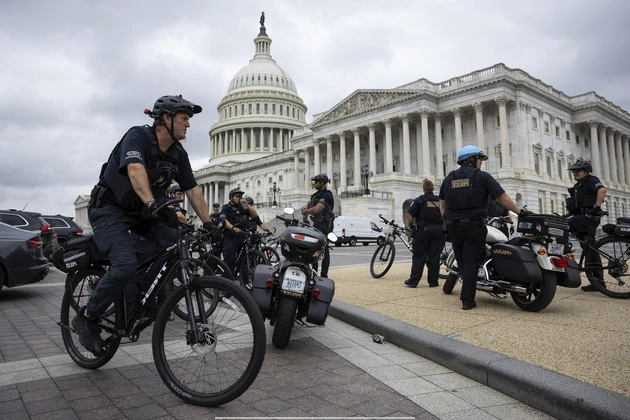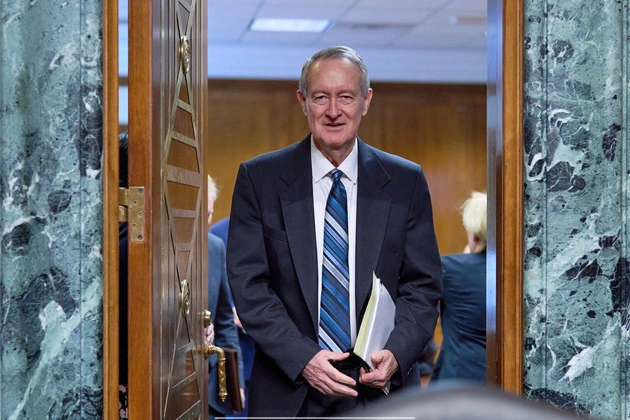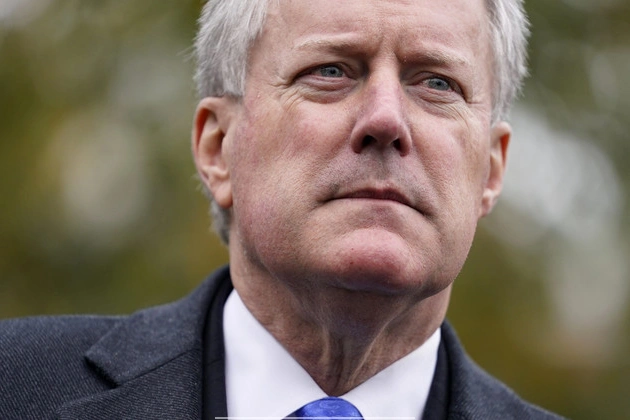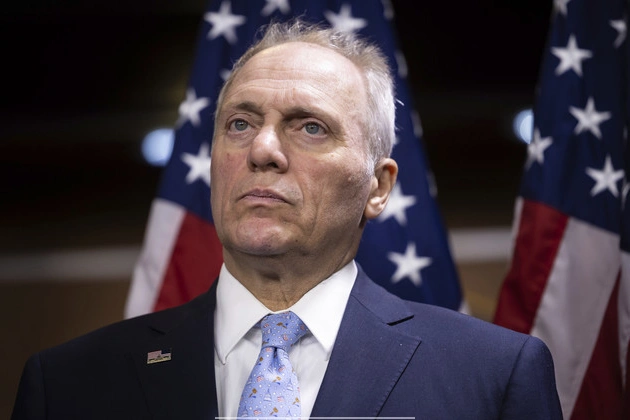
President-elect Donald Trump is beginning to lean on Congress in a big way, but it’s all about next year. Trump is focusing his efforts and expending political capital to ensure that Republican lawmakers go along with confirming his Cabinet picks and can ramp up right away on delivering on his campaign pledges in 2025.
Trump’s Strategic Conversations with Senators
He regularly talks to senators about his nominees, ensuring they’re on a path to confirmation next year, according to a Trump adviser granted anonymity to discuss the conversations. He’s speaking with incoming Senate Majority Leader John Thune and Speaker Mike Johnson about his legislative priorities, namely how to quickly pass immigration, energy and tax policies in major party-line bills.
“Did you hear we have another member? We have 221 members,” joked Rep. Ryan Zinke (R-Mont.). “Trump’s in the House on every issue.”
Focus on Future Legislative Agendas
But he’s been silent, at least publicly, about his preferences on the end-of-year spending bill and the Dec. 20 government shutdown deadline, despite calls from Republicans to weigh in. In a must-pass defense policy compromise, Republicans dropped certain culture-war provisions with knowledge that Trump will likely take executive action to address the issues. And Trump declined to tip the scales in Senate Republicans’ leadership elections beyond raising the specter of using recess appointments to ram through his Cabinet nominees.
Collaborative Efforts for Next Year’s Priorities
“My impression is he’s been very focused on what’s happening next and what he’s about to inherit,” Sen. James Lankford of Oklahoma, an incoming member of Senate GOP leadership, said in an interview.
It shows Trump and congressional leaders are focused on moving in lockstep next year, hoping to cut down on party infighting and pass their major policy priorities quickly. Republicans have privately groused that they felt they squandered their majorities in 2017, wasting their previous Washington trifecta on unsuccessful efforts to repeal Obamacare. Intra-party divisions are already cropping up over the party’s strategy over taxes and the border, but GOP leaders are working to get everyone on the same page ahead of next year. In the meantime, they’re mostly putting Congress on autopilot in the lame duck.
Strategic Planning with Congressional Leaders
Johnson, especially, has had close ties with Trump as the two GOP leaders plan out the legislative agenda next year. He’s met with the president-elect multiple times at Mar-a-Lago and speaks with Trump or members of his team every day. Johnson told reporters he will talk with Trump this weekend before the Army-Navy game in Maryland about the party’s budget reconciliation strategy, which is sparking early division among House and Senate Republicans as some push to pass border priorities more quickly and take more time to write a sweeping tax bill. The budget reconciliation process allows Republicans to skirt a Senate filibuster and pass priorities on a party-line basis.
Thune’s Collaboration with Trump
Thune has also traveled to Mar-a-Lago to strategize with Trump and his team about next year’s legislative agenda, according to a person granted anonymity to discuss the private meeting. And he regularly talks with Trump regarding the status of his nominees, according to another person granted anonymity to discuss the conversations.
Trump’s largely passive attitude toward Congress’ end-of-term business echoes how Trump handled the post-2016 lame duck period, when the president-elect mostly eschewed wading into legislative fights on Capitol Hill before assuming office. And, if past is prologue, his hands-off approach is unlikely to last. Just look at his allies’ current attempts to both pressure Republicans into approving Trump’s most controversial Cabinet picks and bully them into going along with their federal budget-slashing plans.
Anticipated Legislative Priorities
Trump stayed mostly quiet as the 2016 lame-duck Congress passed a short-term government funding patch into April, approved the defense bill, greenlit hundreds of millions of dollars for Flint, Mich. to deal with its water crisis and enacted a sweeping bill meant to speed drugs and medical devices onto the market.
The president-elect’s team at the time ultimately agreed with the congressional legislative maneuvering, though Trump largely avoided using his then near-ubiquitous Twitter account to intervene. He posted on social media just once mentioning Congress from November 2016 until Inauguration Day, questioning a House Republican move to eviscerate an ethics office (they abandoned the push). He also urged the cancellation of a contract for a new Air Force One.
Future Legislative Engagement
But upon taking office, Trump — often volleying out invectives through social media — would frequently weigh in on legislative priorities or urge the confirmation of his nominees and judicial picks, sometimes throwing a curveball at lawmakers at the last minute. And a similar pattern could play out next year.
“He’ll get involved once he gets in. There’s no reason for him to” before then, said Sen. Tommy Tuberville (R-Ala.).
Strategic Approach for Effective Governance
Trump’s allies on the Hill, members of Republican leadership and GOP strategists defended Trump’s hands-off approach to the lame-duck in interviews. Doug Heye, a Republican strategist and Hill alum, said it’s “smart [for Trump] to stay out” and focus on building his administration in the short window he has before Jan. 20.
“Obviously, he’s pretty busy with nominations and filling out his Cabinet and all that,” echoed Sen. Shelley Moore Capito (R-W.Va.), a member of Senate GOP leadership.
And Trump will have a full plate as soon as he comes into office. Congress is only set to patch spending into March, meaning negotiations over new spending levels will begin in earnest once he takes office. He’ll also have to contend with raising the debt limit early next year, in addition to the massive, party-line budget reconciliation bills that Republicans want to pass.
All of those priorities will test the GOP’s unity — with any potential fights impeding swift progress on some of Trump’s biggest priorities.
“There’s a lot he’s got to deal with,” Rep. Chip Roy (R-Texas) said. And these early machinations “are [a] pretty good exposing of what he’s going to have to deal with [in] the Republican Conference.”






